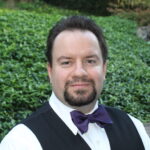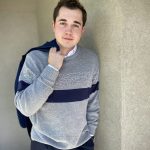Podcast: Download (36.9MB)
Subscribe: RSS
Zachary Wright interviews Dr. Carl J. Cranney about his paper “The Deliberate Use of Hebrew Parallelisms in the Book of Mormon” available at https://scholarsarchive.byu.edu/jbms/vol23/iss1/8/
There has been much said about chiasmus in the Book of Mormon. However, there are 27 other types of Hebrew poetry, which make a much stronger argument for it’s ancient authenticity. These poetic forms appear in specific genres (sermons and narratives) and are absent in others (proclamations and letters). This is exactly the pattern we would expect and shows an intentionality to the poetry that hasn’t been discussed elsewhere.
 Carl J. Cranney received a PhD in systematic theology at the Catholic University of America, where he specialized in theological anthropology and moral theology. He earned his MAR in philosophical theology and the philosophy of religion at Yale Divinity School and his BA in philosophy from Brigham Young University. His academic interests include interfaith dialogue, comparative theology, and the varied Christian approaches to the theology of marriage and family. As a stay-at-home dad, he tries to squeeze in co-hosting duties for the “Pop Culture on the Apricot Tree” podcast and teaching for BYU Pathway in his limited spare time. He lives in Springville, UT, with his wife Susan and their four children.
Carl J. Cranney received a PhD in systematic theology at the Catholic University of America, where he specialized in theological anthropology and moral theology. He earned his MAR in philosophical theology and the philosophy of religion at Yale Divinity School and his BA in philosophy from Brigham Young University. His academic interests include interfaith dialogue, comparative theology, and the varied Christian approaches to the theology of marriage and family. As a stay-at-home dad, he tries to squeeze in co-hosting duties for the “Pop Culture on the Apricot Tree” podcast and teaching for BYU Pathway in his limited spare time. He lives in Springville, UT, with his wife Susan and their four children.
 Zachary Wright was born in American Fork, UT. He served his mission speaking Spanish in North Carolina and the Dominican Republic. He currently attends BYU studying psychology, but loves writing, and studying LDS theology and history. His biggest desire is to help other people bring them closer to each other, and ultimately bring people closer to God.
Zachary Wright was born in American Fork, UT. He served his mission speaking Spanish in North Carolina and the Dominican Republic. He currently attends BYU studying psychology, but loves writing, and studying LDS theology and history. His biggest desire is to help other people bring them closer to each other, and ultimately bring people closer to God.
